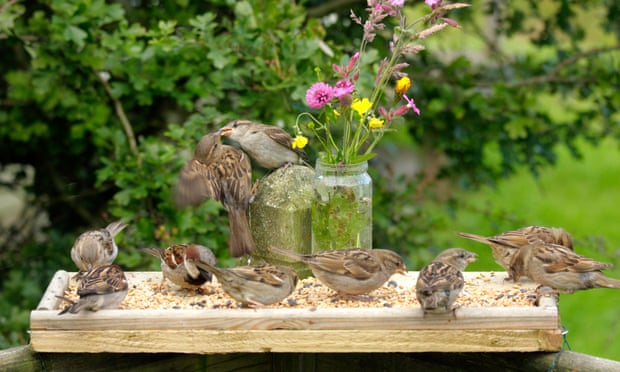A solar-powered airplane finished crossing the United States on Saturday, landing in New York City after flying over the Statue of Liberty during its historic bid to circle the globe, the project team said. The spindly, single-seat experimental aircraft, dubbed Solar Impulse 2, arrived at New York's John F. Kennedy International Airport at about 4 a.m. local time after it took off about five hours beforehand at Lehigh Valley International Airport in Pennsylvania, the team reported on the airplane's website. Such a pleasure to land in New York! For the 14th time we celebrate sustainability," said the project's co-founder Andre Borschberg on Twitter after flying over the city and the Statue of Liberty during the 14th leg of the trip around the globe. The Swiss team flying the aircraft in a campaign to build support for clean energy technologies hopes eventually to complete its circumnavigation in Abu Dhabi, where the journey began in March 2015. The solar cr...
The RSPB Big Garden Birdwatch tracks species such as starlings and song thrushes, which have declined by 80% and 70% since the survey began in 1979. The unusual weather this winter could affect which birds are seen in gardens. The RSPB said it was likely there would be fewer birds because they have been less reliant on garden feeders. December was the warmest and wettest month in the UK in more than a century, before a cold snap was followed by unseasonable warmth in January. The RSPB said it would be interesting to see how this had affected the long tailed tit, which suffers in harsh winters, and if there were lower numbers of species from the continent, including finches and blackbirds.
RSPB wildlife adviser Ben Andrew said: "If the UK experiences a continuation of these milder temperatures, those taking part in Big Garden Birdwatch may notice their gardens quieter than in other years. "The milder weather means there is more food available in the wider countryside, with birds being less reliant on garden feeders." However, Mr Andrew added it was still important to keep garden feeders stocked so that birds could find food whatever the weather. The birdwatch, which takes place over the next two days, encourages people to spend at least an hour spotting birds and then report their sightings to the RSPB.
This enables it to learn more about changes in numbers and spot any long-term trends. Those wanting to take part can register on the RSPB's website.

Comments
Post a Comment